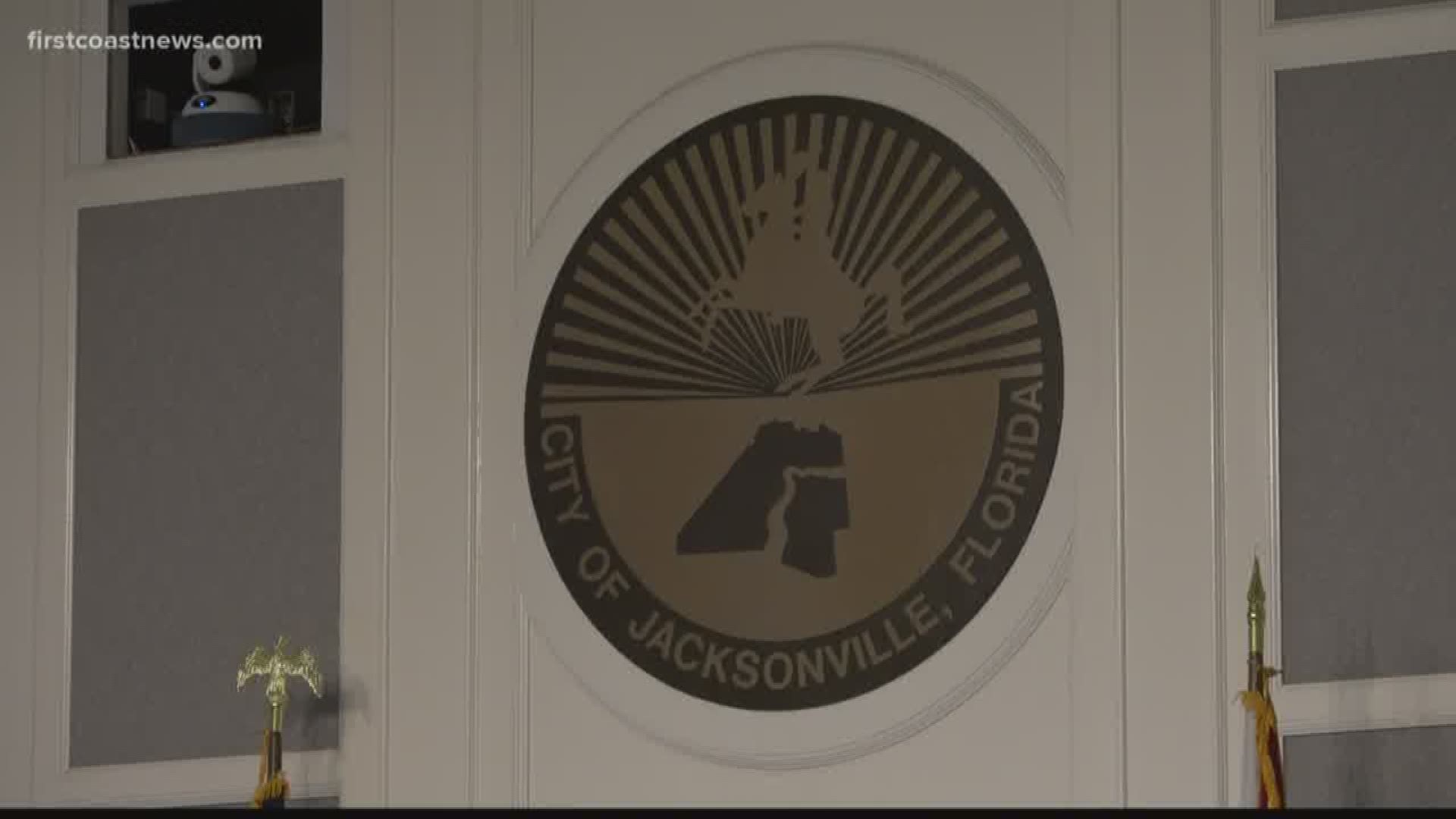JACKSONVILLE, Fla — Two attorneys spent much of Monday morning tearing into data presented by JEA's senior leadership team that seemed to paint the picture of a utility in decline, while at the same time that team was pushing a bonus plan that could have netted them millions if privatization went through.
The firm Nelson Mullins interviewed to represent the council in the probe into JEA but was not selected. However, attorneys from the firm attended the second meeting of the investigative committee to present due diligence findings.
"We identified a number of issues in the information that was ultimately provided to the [JEA] Board of Directors by management," one attorney said.
Attorneys from Nelson Mullins referenced several data graphs pulled from different meetings JEA conducted with the board, as well as data presented to the Public Services Commission (PSC) for regulatory review.
While a 10-year site plan review submitted to the PSC shows steady growth in energy sales for JEA through 2028, data presented to the JEA board and potential buyers showed an eight percent drop.
In fact, the attorneys said, a "disclaimer" was included in JEA's presentation to the board because the numbers did not match up with what was shown to the PSC. The disclaimer can be viewed on slide 17 of the below PDF.
"Wasn't this, in laymen's terms, fraud?," asked Councilwoman Randy Defoor.
"I'm reluctant to characterize it because I'm not a prosecutor," the attorney said. "But it certainly looks it."
The attorneys also shot down one of the alternatives to privatization that was proposed by senior leadership, the idea of JEA becoming a "co-op." They said that option was a "strawman," and that it was not realistic that JEA could be purchased by a co-op consortium because Jacksonville is not rural.
Chairman Rory Diamond had sharp criticisms for JEA senior leadership following the firm's presentation, saying that leadership had tried to "swindle" the city.
"They manipulated the data to make JEA look like it was dying, like it was having trouble, like it was going to fall apart," he said. "And it wasn't, it was actually getting better."
The attorneys also criticized the controversial bonus plan that was driven forward by members of the JEA leadership team, including ousted CEO Aaron Zahn.
According to the attorneys, a "phantom stock" plan was created in order to bypass legal advice from the Office of General Counsel on a long-term incentive plan. Essentially, employees would be buying into JEA as it was sold in the future, rather than the current municipal utility.
"I feel like we've been bamboozled," said Councilwoman Ju'Coby Pittman. "I can't even describe what I'm feeling. What we would have done to our customers if we had sold JEA ... it's very, very disturbing."
After Nelson Mullins wrapped their presentation, a current JEA employee was brought forward to swear under oath and testify, the committee's first witness.
Patricia Maillis, JEA's Director of Employee Services, has worked at the utility for more than six years. Her department is responsible for talent acquisition, and namely, benefit plans. Maillis' sworn testimony can be viewed here.
Maillis testified that she first learned of the idea for a bonus plan around October 2018 after Aaron Zahn asked her superior to pursue a long-term incentive plan.
Maillis said that early on, she was told the plan would include a contribution to the city and would be a profit-sharing model for employees.
As part of the exploration of a bonus plan, Maillis did benchmark work and researched bonus plans of 14 different public utilities around the county. None of them had the kind of long-term incentive plan Zahn wanted.
After her research, Maillis said she approached approved outside consultant Willis Towers Watson in early November 2018 to ask for input.
Consultants told her it was "very atypical" for a public utility to pursue a long-term incentive plan.
"They thought the perceptions would not necessarily be positive," she said. "They felt like being in a public entity that did not usually have long-term incentives, it wouldn't be popular."
After a March 2019 meeting with consultants from Willis Towers Watson, Maillis and her department, as well as Zahn and other leadership, Maillis continued to talk with Watson.
"We were coming off a time that we were looking at innovation and doing things differently, moving things in a different direction," she said. "I was under the impression that we were doing something that would enhance the employees' compensation and move us to a different level."
Maillis' conversation with Willis Towers Watson faded over time, as she did not have further directives from her superiors past gathering information.
"Around May it seemed like Willis Towers Watson was not aware that we were required to disclose our work publicly," she said. "There began to be a discussion about redacting information from Willis Towers Watson perspective."
Months would pass, and by the July board meeting in which exploring privatizing was approved, Maillis did not think the bonus plan had gone further. She was surprised to hear at that meeting that not only had the plan been drafted, but it was to be presented and voted on.
"Did you know before that board meeting that they were going to present the performance unit plan?" Diamond asked.
"No," she said.
"And you're in charge of compensation and benefits?"
"Supposedly, yes."
Maillis expressed concerns that the legal language in the performance unit plan (PUP) would not be understandable for most regular JEA employees after she first received it around the end of August.
Right now, JEA management is working to produce thousands of documents related to the 84-point records request made by the committee after their first meeting.
During Monday's meeting, members of the special investigative committee also suggested to staff from the Office of General Counsel that interim JEA CEO Melissa Dykes should be interviewed as part of the probe.


